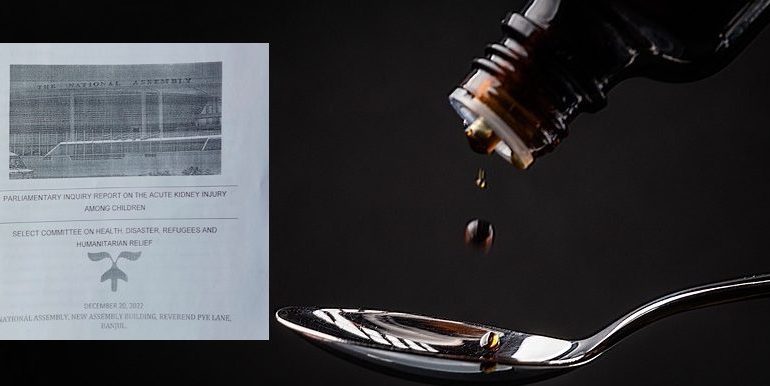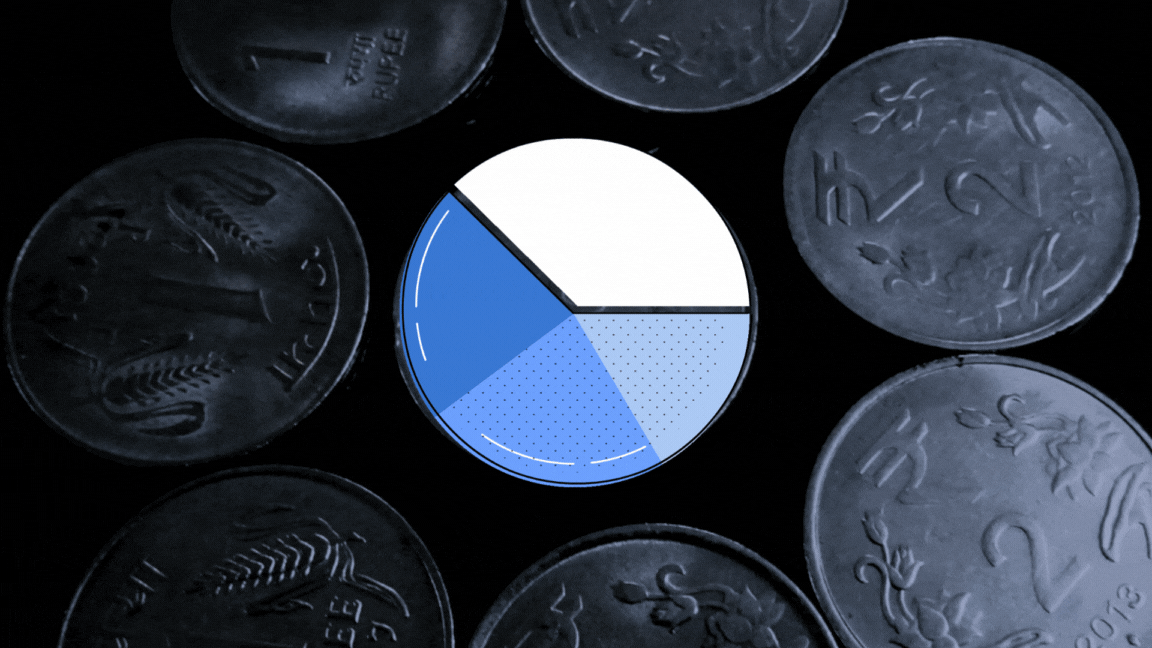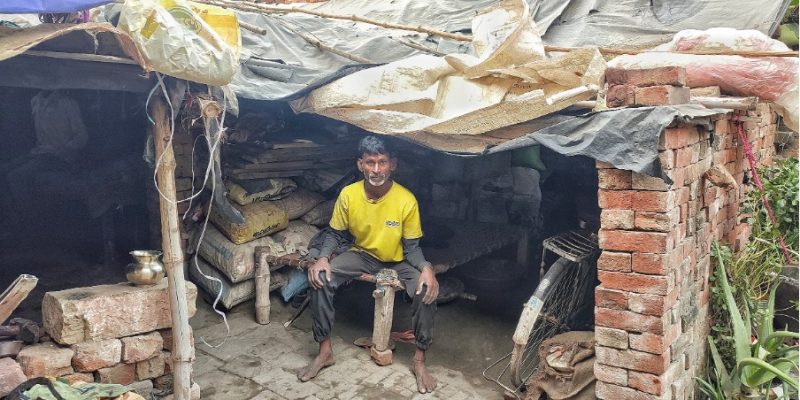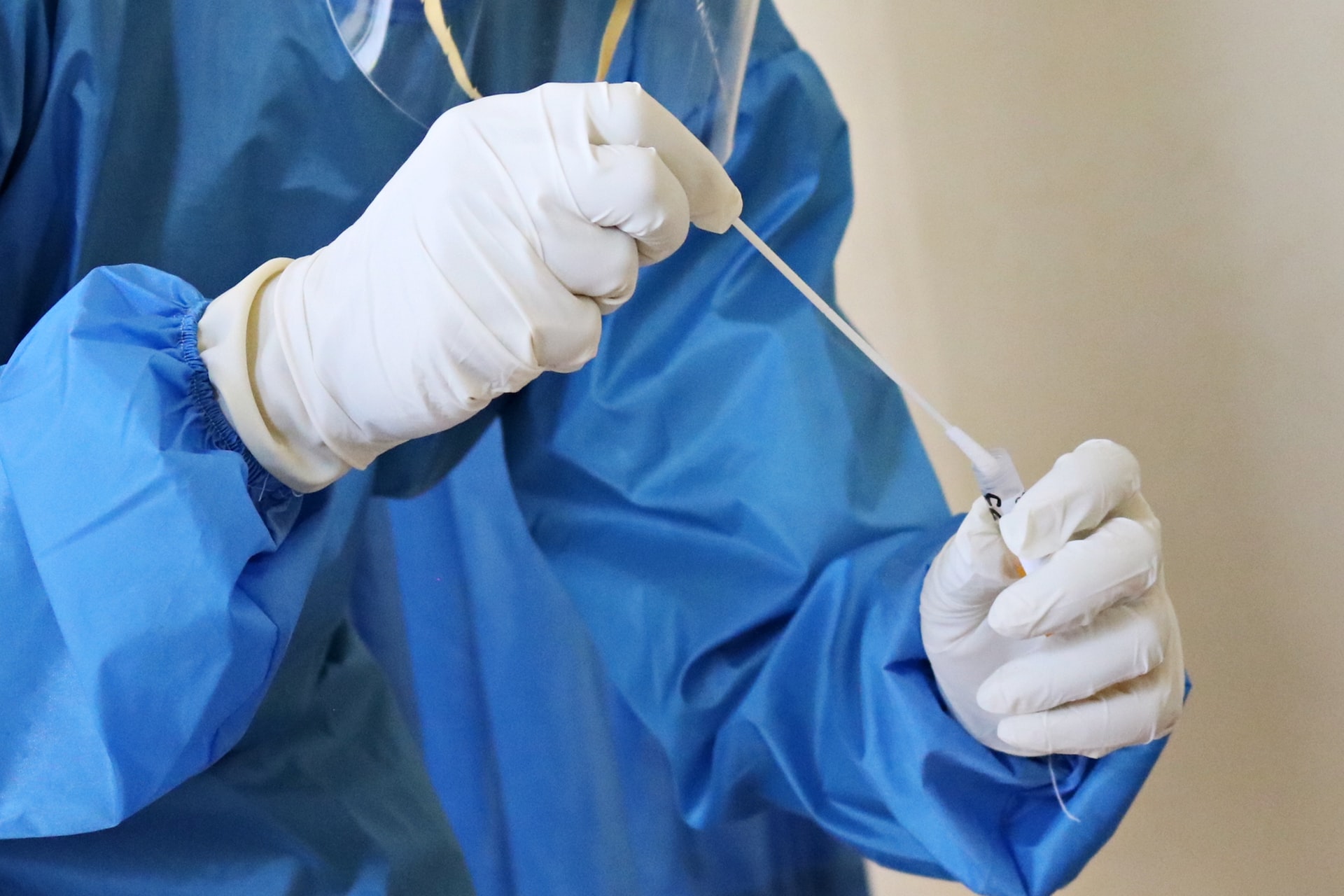Indian Firm ‘Culpable’ for Kidney Injuries Linked to Death of 70 Children, Gambia Parliament Probe Says

New Delhi: The select committee on health of Gambia’s parliament, known as the National Assembly, has concluded that cough syrups made by Haryana-based Maiden Pharmaceuticals were responsible for the acute kidney injuries (AKI) seen in 70 children in the West African nation who died from June to October 2022. The report was submitted on December 20, 2022.
“The Select Committee is convinced that Maiden Pharmaceuticals Ltd. is culpable and should be held accountable for exporting the contaminated medicines that was linked to the death of at least 70 children in The Gambia 2022,” the report, which The Wire has a copy of, states.
It noted that “all the cases of AKI are linked to the consumption of the contaminated medical products imported by Atlantic Pharmaceuticals and manufactured by Maiden Pharmaceuticals Ltd India”, adding that the “actual cause of death of these children is still under scientific investigations as causality test[s] are currently being undertaken by the Ministry of Health and partners.”
The committee was mandated by the National Assembly on October 26, 2022, to “conduct a full-scale parliamentary inquiry into the matter of the AKI and related deaths with a view of unearthing the truth and circumstance surrounding this unfortunate incident, and to advise the Assembly accordingly”.
It spoke to 16 stakeholders including government bodies, health institutions, scientific institutions, AKI Victims Association and Justice for 66+children – a group comprising parents whose children died, and their sympathisers) – among others.
Also read: Maiden Pharma, the Company Whose Syrup Killed Gambian Children, Is a Habitual Offender
The drug regulator of Gambia, Medicines Control Agency (MCA), informed the select committee that a Switzerland-based lab had found that the four cough syrups made by Maiden Pharmaceuticals — Promethazine Oral Solution, Kofexmalin Baby Cough Syrup, Makoff Baby Cough Syrup and Magrip N Cold Syrup – contained unacceptably high levels of diethylene glycol (DEG) and alludes to results a Switzerland-based laboratory.
Incidentally, The Wire had accessed the report of the Swiss lab, which was assigned by the World Health Organisation to test samples of the four cough syrups in question. The Wire reported on December 19 that the lab had found out that these samples contained DEG up to 21.3%.

Front labels and back labels of the four Maiden pharmaceuticals products, with their active ingredients: Promethazine Oral Solution, Kofexmalin Baby Cough Syrup, Makoff Baby Cough Syrup and Magrip N Cold Syrup. Credit: WHO
The products were imported into Gambia by Atlantic Pharmaceuticals, according to the report. The MCA told the committee that the imported products were marked satisfactory upon arrival because the manufacturer – Maiden Pharmaceuticals – had given such a certificate for products “indicating that the products are of good quality and fit for use.”
Every drug manufacturer has to issue such a certificate for every batch it releases in the market after testing the final products before dispatch. The regulator made it clear to the committee that since it had no quality control laboratory facility of its own for the purpose of testing, it relies on manufacturers’ certification.
The report quotes an expert team of the West African Post Graduate College of Pharmacists about the cause of the problem:
“It is a quality assurance failure on the part of the manufacturer. All raw materials for production on arrival in a factory are quarantined and released only when quality control certifies the material as having met the required standard. Sampling is carried out at every stage of the ‘production process’ for quality control till the final product. The final product is certified again with a label indicating contents and quantities. It is obvious this was not done for the contaminated products. The manufacturer did not follow Good Manufacturing Practices (emphasis added in the report).”
The committee said all its efforts to get in touch with Maiden Pharmaceuticals during the course of investigation were futile because it did not answer its emails and phone calls. The said ‘contaminated’ products were imported into the country in June 2022 – the same month the AKI outbreak started, as per the report.

Maiden Pharmaceuticals Ltd. Photo: Reuters
The 42 page report, signed by Amadou Camara, the chairperson of the committee, also clarified that the importer – Atlantic Pharmaceuticals – had submitted all required documents to the Gambian regulator in accordance with the country’s rules.
Ever since these four drugs were removed from the market and a house-to-house search conducted in October, there has been no new case of AKI in children, the committee said. The Wire’s Monday report also quoted a Gambian epidemiologist who made the same claim.
Similar pattern in symptoms
The first case of AKI injury was reported to the Edward Francis Small Teaching Hospital in Banjul on July 7. The 46-month-old child was not able to pass urine. Two days before landing at the hospital, he had been given oral medications including Ampicillin, Metronidazole and Paracetamol. The report does not name brands but paracetamol is one of the ingredients of Magrip syrup.
Also read: Exclusive: Lab Report Commissioned by WHO Shows DEG Contamination in Cough Syrups
In the summary of the clinical findings, the committee says that almost all the cases showed one pattern – inability to pass urine without any sign of dehydration as such. By the time the kids were reported to clinicians, they had taken medicines beforehand which the doctors suspected were toxic. Later the lab reports proved doctors’ suspicions to be true.

Amadou Camarra, head of the Gambian parliament committee. Photo: Facebook
“The lab results of the organ functions of these children showed very high levels of creatinine, liver enzymes and uric acid that is very inconsistent for children mostly under 2 years. The autopsy results of two of them showed multi-organ failure and fatty Necrosis explains that there was a toxin that was causing multi-organ failure,” the report reads.
Despite dialysis, the children did not show any signs of improvement according to the report. “This is very atypical of acute kidney injury that has a recovery rate of 85% and survival rate 98%. In these case series, there was 84% mortality rate [thus indicating involvement of a very strong toxin],” the committee said.
The report also clears the air about a suspected E.coli infection in some children. Some media reports quoted this as a possible cause of death, delinking it with the syrups. The committee’s report said that stool samples had tested positive for E coli in some children but those samples were not taken from those who had gone to clinicians reporting symptoms that were typical to the AKI outbreak. In fact, a majority of these children did not report diarrhoea or dehydration, which are classical signs of E. coli infection, the committee said.
Among other things, the committee recommended establishment of a robust pharmacovigilance unit to prevent a repeat of such a tragedy in future.
WHO and Indian regulator at logger-heads
The WHO had issued a product alert against the said products on October 5, 2022. The Indian drug regulator, Central Standards Drug Control Organisation, however, said in a letter to the WHO on December 13 that its own investigation of control samples of these syrups did not reveal any contamination and accused the WHO of premature deductions (For every batch of the drug which is released in the market, a manufacturer is supposed to preserve samples, known as ‘control samples’, for any future investigation). The CDSCO, nonetheless, has neither made its report public nor has it revealed any details of its own investigation.







